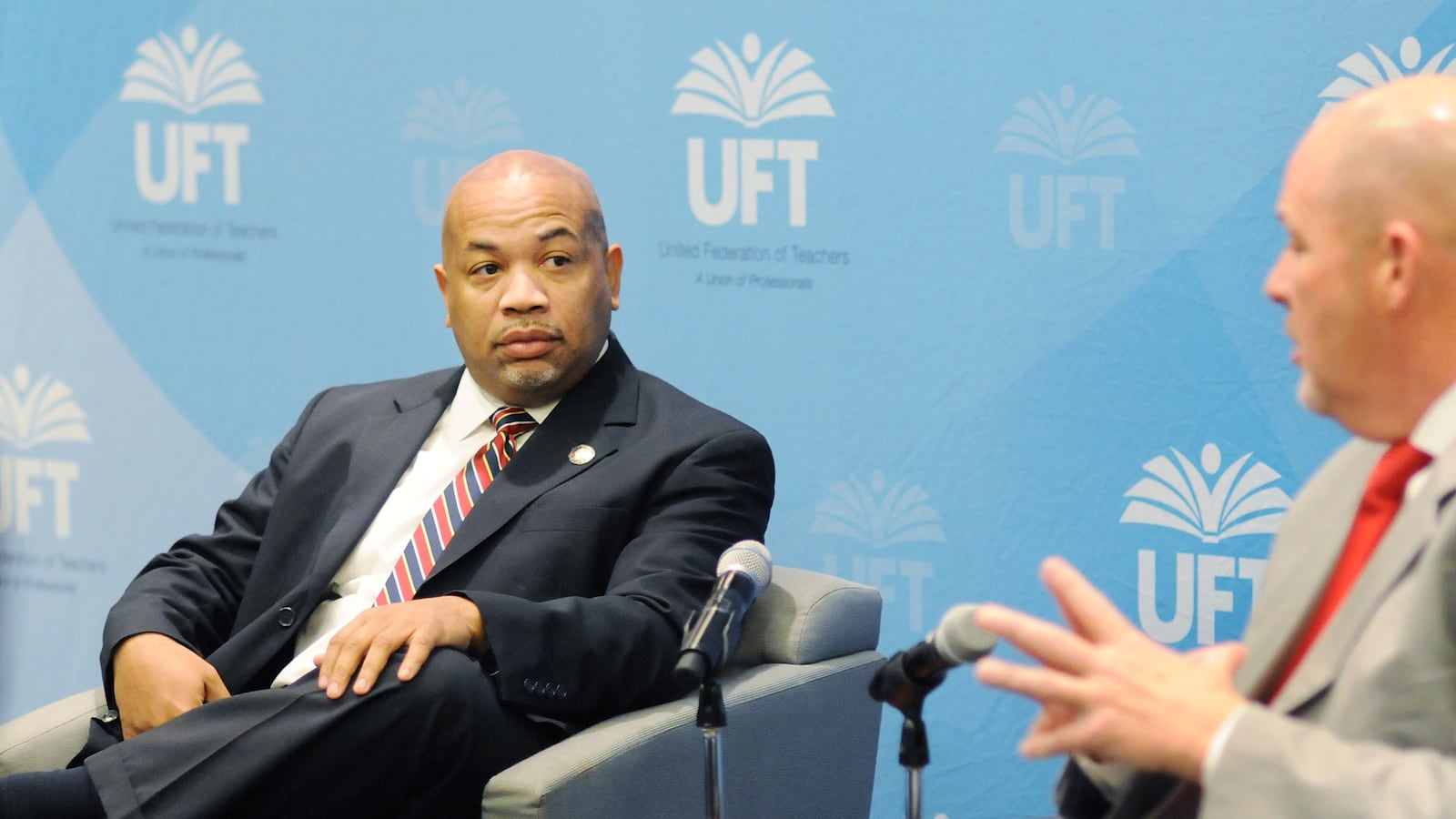It’s Washington politics — not Albany’s — that are keeping state Assembly Speaker Carl Heastie up at night as he girds himself for New York’s coming budget season.
New York is facing its own $4.4 billion budget deficit amid ongoing power struggles in Albany. Yet it’s the tax overhaul being pushed by Congressional Republicans and President Donald Trump, along with possible federal spending cuts — both of which could take a bite out of funding for New York schools — that are worrying Heastie, a Democrat who represents the Bronx and is closely aligned with the New York City teachers union.
“Absent any other federal action that can do damage, I think we can manage that so that our schools will be fine and our healthcare can be fine,” he said Tuesday during a preview of next year’s legislative session hosted by the union. “It’s the unknown of what’s going to happen. What’s the next bad thing that Washington is looking to do.”
He was speaking at the union’s headquarters in Manhattan’s Financial District, where he was interviewed by UFT President Michael Mulgrew as part of an ongoing discussion series. (Critics were quick to pounce on the event as evidence that Heastie does the union’s bidding.)
Heastie — who will negotiate the state budget with Democratic Gov. Andrew Cuomo and the state Senate — has championed union issues in Albany. He supports the creation of “community schools,” which are filled with social services for students and their families, and has been less friendly to charter schools than his counterparts in the Senate.
During the discussion, Heastie did not say how much funding he would like to see allocated to education in the 2018-19 budget. But he noted that Cuomo typically builds a roughly billion-dollar increase to school aid into his budget — and that the Democratic-controlled Assembly usually looks to add more.
The state’s top education policymakers, the Board of Regents, released a budget proposal on Monday calling for a $1.6 billion increase in education spending. That is significantly less than their request last year, a sign they are nervous about the current budget climate.
Despite the funding uncertainty, Heastie can at least breathe a sigh of relief that he will not have to battle again this year to keep a different ally — Mayor Bill de Blasio — in charge of the city schools. For the first time, de Blasio secured a two-year extension of mayoral control last year, giving him and his backers a break from a fight that consumed the last three sessions.
Instead, charter-school policy could once again flare up. Last year, a dispute over charter funding helped push the budget well past its deadline. This year, Heastie said, he is not yet aware of any new charter-related bills heading into the new legislative session, which begins in January.
Meanwhile, he and the union are mulling changes they’d like to see to teacher evaluations.
In 2015, after fierce resistance by the unions, the state tied teacher ratings much more closely to state test scores. The move helped spark a statewide boycott of the tests, leading the Board of Regents to pass a moratorium on the use of grades 3-8 math and English tests in teacher evaluations.
However, the moratorium is set to sunset in 2019, which will likely eventually force lawmakers to change the law. Heastie did not say that he will push for a repeal this year, but did say it is time to “start the dialogue” about how to improve evaluations.
“I don’t know if we can get to a final idea,” he said. “But I think the earliest we could give schools and school districts around the state [notice] that there will be a different way to look at our student progress, I think the better.”


